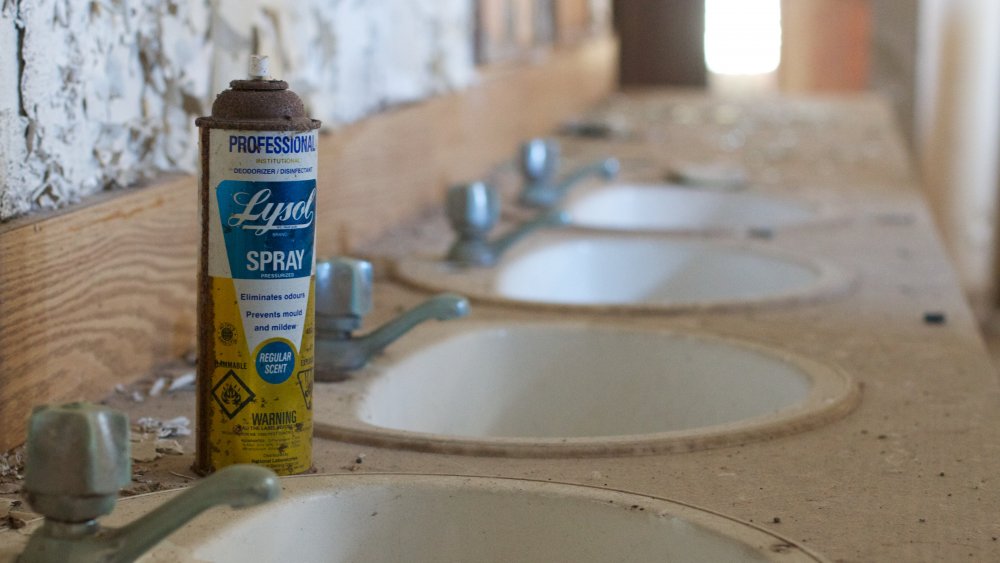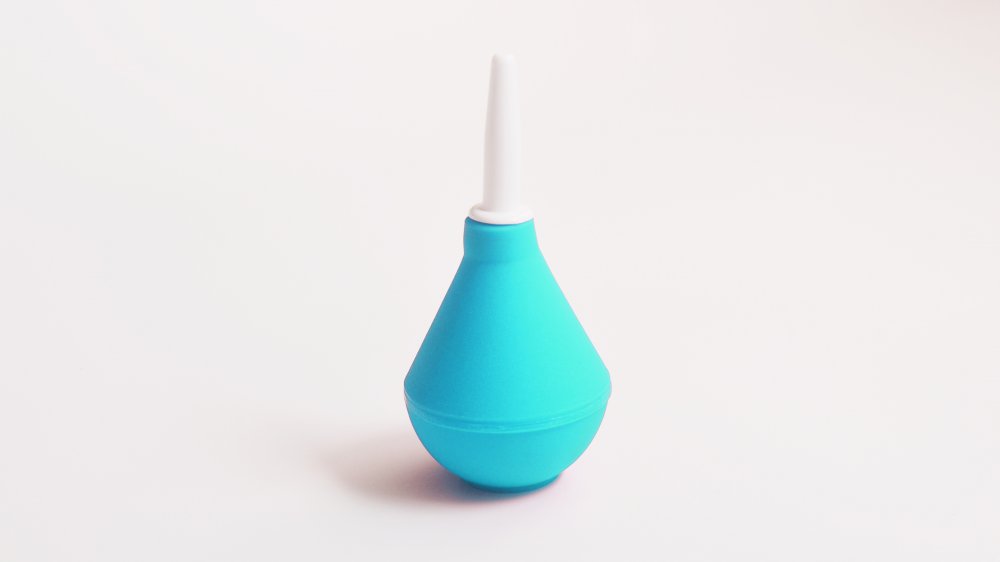The Messed Up History Of Lysol
In February 2020, when the worldwide coronavirus pandemic was still looming, people took to the internet with pictures of Lysol bottles that declared their ability to kill the human coronavirus. They were shocked and wondered if Lysol predicted the future. Sadly, the answer Lifehacker gave was rather more prosaic: coronavirus is simply a category of virus which includes SARS, MERS, and now covid-19.
Still, just over a century after the beginning of the 1918 influenza pandemic, Lysol is once more leading the household protection against a pandemic. In a piece for The Guardian, Matthew Curlewis quotes a letter from his great-aunt who was a nurse during the 1918 flu's outbreak in Australia to her mother: "Matron asked me was I coming home on my 24 hours' leave and said she thought there would be no risk if I had a Lysol bath, wore a mask all the time, and clean clothes, and kept six feet away because." While Curlewis' purpose wasn't to highlight a Lysol cameo, it crops up as a general tool for disinfectant.
In a similar vein, Lysol promotes this history on its own website under the History of the Flu subsection. Starting with the Spanish Flu — which should be the Kansas Flu — and continuing through to the Swine Flu, the page ends as one would imagine: "Find out how you can avoid the flu this seasons [sic] with Lysol®." However, Lysol's usage extended far beyond cleansing kitchen counters during the plague into more unusual purposes.
Douse yourself with a Lysol douche
"During the years following her marriage, she has protected her zest for living, her health and youthfulness and 'stayed young with him' by the correct practice of feminine hygiene." That sentence comes from a piece of paid content by Lysol under the headline "Still 'the girl he married'" in which Lysol tried to impress upon the presumably female reader the importance of using the proper brand, namely Lysol. In short, Lysol promoted itself as a douche.
However, as The Society Pages pointed out, the consumers of Lysol weren't attempting to impart their genitals with a chemically tinged scent of lemon. Rather, "feminine hygiene" was a euphemism for contraceptives. Apparently, this wasn't as bad as it sounds, but worse: "[Lysol's] recipe was significantly more dangerous than the one used today. Hundreds of people died from exposure to Lysol, including women who were using it to kill sperm. It was also, to add insult to injury, wholly ineffective as a contraceptive."
Furthermore, as an article in The Atlantic on the arguments against abortion includes as a side detail, Lysol was used as an instrument for abortion that killed one of the four women who used it. Yes, people do weird things with relatively new technology, but actively selling mixtures that purposefully scald women on the insides and occasionally kill them is a bit much. Fortunately, it seems people and Lysol realized this in the 1960s and have since stopped.

